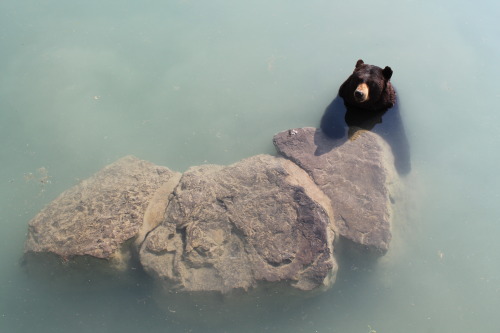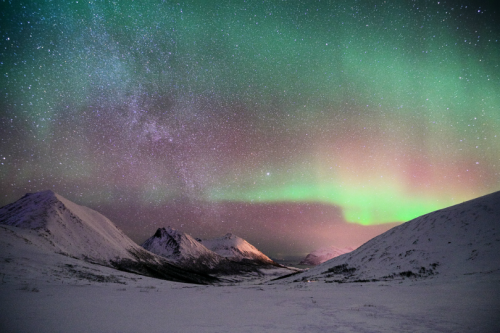Alejandro, Grande Entre Los Grandes
Alejandro, grande entre los grandes



HELLENISTIC WARFARE:
WHEN Alexander the Great died in 323 BCE, he left behind an empire devoid of leadership. Without a named successor or heir, the old commanders simply divided the kingdom among themselves. For the next three decades, they fought a lengthy series of wars - the Wars of the Diadochi or Wars of the Successors - in a futile attempt to restore the tattered kingdom.
Although the Hellenistic Age saw Greek language, art and philosophy flourish throughout Asia, there were few advances in military tactics. Instead, it was a time of “kingdoms and their armies.” The successors inherited an army borne out of the reforms of Philip II of Macedon. He was an innovator; the first Greek to master siege warfare, and with his son Alexander, they made Macedon the foremost power in both Greece and Asia. Together, Alexander and his father would create an army unlike anything the ancient world had ever seen.
Read More
Article by Donald L. Wasson || Photos by Mark Cartwright, Carole Raddato and Caroline Cervera on AHE
More Posts from Novato-curioso-blog and Others
Un hermoso castillo en Molina, data del s. XVII con remodelaciones en el XIX y XX. Quien lo reconstruyó como el original, se quemó parcialmente en 1896, fué Hubert von Tiele-Winckler hijo.

Moszna Castle, Poland

via #NASA_APP
via #NASA_APP
Hermoso, no?

These three bright nebulae are often featured in telescopic tours of the constellation Sagittarius and the crowded starfields of the central Milky Way. In fact, 18th century cosmic tourist Charles Messier cataloged two of them; M8, the large nebula left of center, and colorful M20 on the right. The third, NGC 6559, is above M8, separated from the larger nebula by a dark dust lane. All three are stellar nurseries about five thousand light-years or so distant. The expansive M8, over a hundred light-years across, is also known as the Lagoon Nebula. M20’s popular moniker is the Trifid. Glowing hydrogen gas creates the dominant red color of the emission nebulae, with contrasting blue hues, most striking in the Trifid, due to dust reflected starlight. This broad skyscape also includes one of Messier’s open star clusters, M21, just above and right of the Trifid.
Object Names: M8, M20, M21, NGV 6559
Image Type: Astronomical
Credit: Martin Pugh
Time And Space
Para una hermosa fotografía, un hermoso animal.

. Snowy Owl. Photography by @ (David Hemmings). This beautiful Snowy Owl was photographed in Ontario, Canada, she was just landing in a field and keeping an eye on us. #Owl #Wildlife #Canada #SnowyOwl
Vean esto!! La hermosa vía láctea y algo de arte histórico!!

Photo of the Day: The Juggler
Photographer caption: On seemingly random boulders scattered across the Utah desert one can find art. These are typically in dark places with little or no light pollution. Standing there at night with only the stone, wind and sky, one can feel the world as it was thousands of years ago.
Photo by Marc Toso (Salt Lake City, Utah, USA); San Rafael Swell, Utah, USA
Submit your best shots to our 14th Annual Photo Contest, open now!
Por favor disfruten las imágenes de la aurora boreal, son colosales!!!!




Nightsky / Tromvik, Norway by John A Hemmingsen
Maravillosa imagen. Este es un excelente blog.

How could a galaxy become shaped like a ring? The rim of the blue galaxy pictured on the right is an immense ring-like structure 150,000 light years in diameter composed of newly formed, extremely bright, massive stars. That galaxy, AM 0644-741, is known as a ring galaxy and was caused by an immense galaxy collision. When galaxies collide, they pass through each other – their individual stars rarely come into contact. The ring-like shape is the result of the gravitational disruption caused by an entire small intruder galaxy passing through a large one. When this happens, interstellar gas and dust become condensed, causing a wave of star formation to move out from the impact point like a ripple across the surface of a pond. The intruder galaxy is just outside of the frame taken by the Hubble Space Telescope. This featured image was taken to commemorate the anniversary of Hubble’s launch in 1990. Ring galaxy AM 0644-741 lies about 300 million light years away.
Object Names: Ring Galaxy, AM 0644-741
Image Type: Astronomical
Credit: Hubble Heritage Team (AURA/ STScl), J. Higdon (Cornell), ESA, NASA
Time And Space
Mujer talentosa y valiente. Vale la pena recordarla.

Polish Literature: The Inquietude by Grażyna Chrostowska (1921 - 1942) The day is like the inquietude of Chopin’s music, The birds, scared away from their nests are circling Low above the earth, They are listening, afraid…
Quietness in the nature, warmth is like before a storm. From the West, low, dark clouds flow. Waylaid fear strikes into the heart. Homesickness, homesickness…
I want to walk on soggy roads, Listen to the sound of wind, Hunt the breath of spring time, Feel the deepest feeling, Find quietness in love.
I am walking, unable to find, keep changing and returning. Somewhere far a way, village hamlets are left behind.
Clouds flew to the East, And on the east side, Lonely, leaning, dark trees endure, In the wind, and in the quietness, They are swung by the inquietude.
■ Grażyna Chrostowska was born on 21 October, 1921 in Lublin, Poland. She was a member of the underground KOP (Komenda Obrońców Polski) organization during the Nazi Germany occupation of Poland. She was arrested by Gestapo in Lublin on 8 May, 1941. Together with her sister she was sent to the Ravensbrück Concentration Camp on 23 September, 1941. On 18 April, 1942, Grażyna Chrostowska (aged 21) and her sister were executed by firing squad in the camp. 8 hours before her death, she wrote the poem titled “The Inquietude” (Niepokój).
-
 oxymitch-archive liked this · 5 years ago
oxymitch-archive liked this · 5 years ago -
 sheloveskitties liked this · 6 years ago
sheloveskitties liked this · 6 years ago -
 wanderer001 liked this · 6 years ago
wanderer001 liked this · 6 years ago -
 fauxsad reblogged this · 6 years ago
fauxsad reblogged this · 6 years ago -
 themasterplanner liked this · 6 years ago
themasterplanner liked this · 6 years ago -
 frances-blofis liked this · 6 years ago
frances-blofis liked this · 6 years ago -
 fuzzymiraclebanana reblogged this · 6 years ago
fuzzymiraclebanana reblogged this · 6 years ago -
 fuzzymiraclebanana liked this · 6 years ago
fuzzymiraclebanana liked this · 6 years ago -
 wolf-gang-cobain liked this · 8 years ago
wolf-gang-cobain liked this · 8 years ago -
 genghis-farrakhan liked this · 8 years ago
genghis-farrakhan liked this · 8 years ago -
 dreamwarriorgod-blog liked this · 8 years ago
dreamwarriorgod-blog liked this · 8 years ago -
 necrowizard liked this · 8 years ago
necrowizard liked this · 8 years ago -
 thelanguorofyouth reblogged this · 8 years ago
thelanguorofyouth reblogged this · 8 years ago -
 mayothefirst reblogged this · 8 years ago
mayothefirst reblogged this · 8 years ago -
 captaintak liked this · 8 years ago
captaintak liked this · 8 years ago -
 allielou13 liked this · 8 years ago
allielou13 liked this · 8 years ago -
 yongaeelf reblogged this · 8 years ago
yongaeelf reblogged this · 8 years ago -
 yongaeelf liked this · 8 years ago
yongaeelf liked this · 8 years ago -
 m0rt1fy reblogged this · 8 years ago
m0rt1fy reblogged this · 8 years ago -
 youwho37-blog liked this · 8 years ago
youwho37-blog liked this · 8 years ago -
 padawangungi reblogged this · 8 years ago
padawangungi reblogged this · 8 years ago -
 padawangungi liked this · 8 years ago
padawangungi liked this · 8 years ago -
 lolman0011 liked this · 8 years ago
lolman0011 liked this · 8 years ago -
 visualsenses liked this · 8 years ago
visualsenses liked this · 8 years ago -
 daxtm reblogged this · 8 years ago
daxtm reblogged this · 8 years ago -
 lightofthepacificocean reblogged this · 8 years ago
lightofthepacificocean reblogged this · 8 years ago -
 lightofthepacificocean liked this · 8 years ago
lightofthepacificocean liked this · 8 years ago -
 denjiro liked this · 8 years ago
denjiro liked this · 8 years ago -
 giorgioooo-blog1 liked this · 8 years ago
giorgioooo-blog1 liked this · 8 years ago -
 novato-curioso-blog reblogged this · 8 years ago
novato-curioso-blog reblogged this · 8 years ago -
 novato-curioso-blog liked this · 8 years ago
novato-curioso-blog liked this · 8 years ago -
 sweetlychocolatenut liked this · 8 years ago
sweetlychocolatenut liked this · 8 years ago -
 stephenearp liked this · 8 years ago
stephenearp liked this · 8 years ago -
 shizen101 liked this · 8 years ago
shizen101 liked this · 8 years ago -
 wannawatchuwiggle liked this · 8 years ago
wannawatchuwiggle liked this · 8 years ago -
 uunsi reblogged this · 8 years ago
uunsi reblogged this · 8 years ago